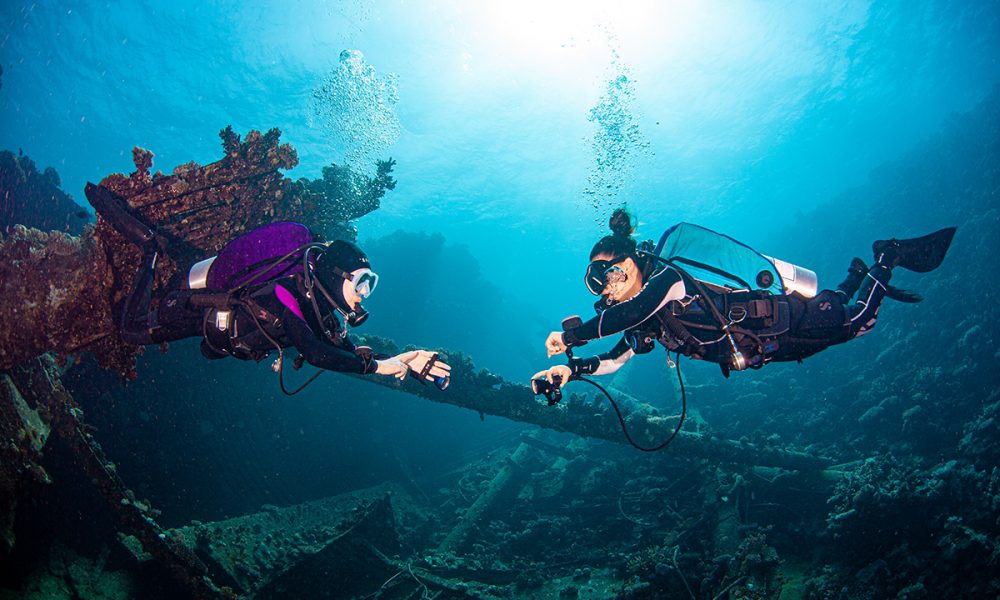@JacobAdkins
I had less experience than you and got a Rec Pass my first try last September (the only one in the class). I also had very little time to practice and prepare. But I am naturally aligned with GUE's philosophy and techniques, so there weren't many surprises. Even so, it was tough and I got 5-6 hours of sleep through the whole course. Here's my advice about Rec vs Tec Pass as a new diver, and hopefully it will help.
Do not even bother with a Tec Pass right now. Forget it. The standards are more strict and since you're a new diver like me, the task loading you'll experience, having no doubles experience, will make your success (and
enjoyment) unlikely. Plus, everything you do in Fundies is as a team. While you are evaluated as an individual, you are also evaluated on your ability to communicate, plan and dive within a team. If you drag the team down, or are always trying to do your own thing, everyone is affected. I think Fundies is really good for showing a diver the mirror, both literally and figuratively. Use it as a base line evaluation of yourself so you know how you can progress and forget about the status you receive at the end. Looking back on it, I am happy I had no chance to try for a Tec Pass because I was able to focus on building solid foundational skills. And I had a fantastic instructor.
If you have time, absolutely try to practice
some things. Practice staying absolutely still in the water - no movement up or down, side to side, rotationally, or backwards/forwards. Find or make good markers to judge your movement and record yourself. If you don't have this down, you'll have front row seats on the struggle bus.
You can try the kick styles, but unless you have good proprioception or an experienced buddy, I'd focus on trim and buoyancy. You can also practice communication, even by yourself. Watch GUE videos and really study what they are doing, even down to which hand does what, when, and why. Be detail-oriented in the military sense.
Think about it this way... Do you even know how you breathe? Have you ever used a can light? Do you know when to remove it, how to stow the cable? Do you have experience with long hose configurations? Have you shared air while ascending at a strict 10ft per minute (yes, that's what we did - total control), holding stops every minute while communicating? Aside from the can light, those are the things you'll be expected to do with only a single tank.
Fundies is a great course and I wouldn't trade it for anything. I can't wait to do it again to try for a Tec Pass. Don't underestimate the seemingly small stuff. If you can't stay still and calm in a single tank -removing all other tasks above- I would let the idea of a Tec Pass go. If you can't stay still while removing your mask/finding a replacement/stowing the old mask, sharing air, or deploying an DSMB, then let the Tec Pass go.
GUE is also better organized than most dive organizations. All of their standards are readily available online, as already mentioned. I would study those and see how you fit within them. Moving 5ft vertically may seem like a lot, but it's really easy to surpass that if you're not careful or haven't practiced your buoyancy and breathing.
Hope that helps! Enjoy it and soak it in!!







